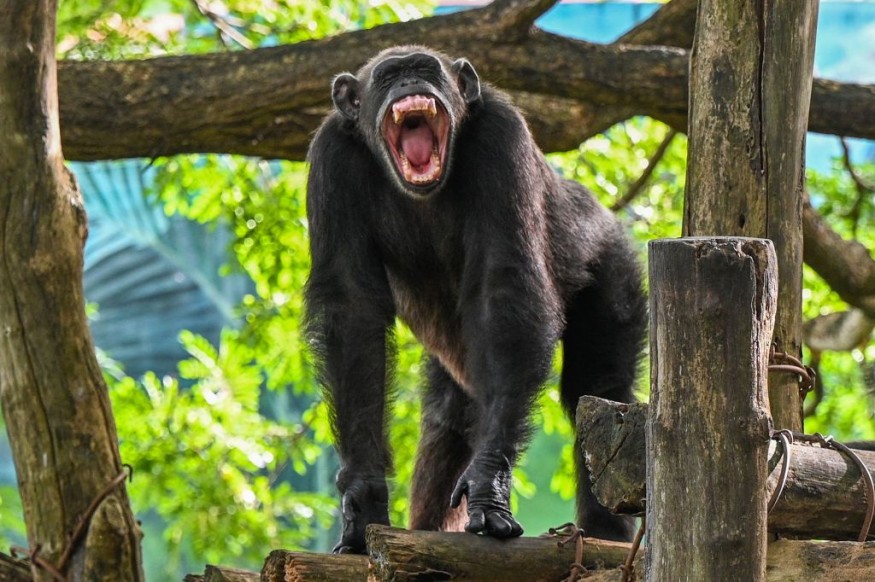
Female chimps in an East African forest go through menopause and then live for years, if not decades, after being biologically incapable of reproducing.
The apes are the first known wild, nonhuman primates to undergo fertility-suppressing hormonal alterations and live much past their reproductive years.
Post-reproductive Stage
Experts have long been mystified as to why some female mammals have a long time of life when reproduction is no longer an option. Not only was it previously considered to be limited to humans and five species of whale, but its purpose has also been highly questioned.
Scientists claim to have discovered the occurrence in a non-human primate in the wild for the first time.
In a study published in the journal Science, researchers explained how they observed 185 females in the Ngogo group of wild chimps in Kibale National Park, Uganda, from 1995 to 2016.
The researchers discovered that the likelihood of giving birth decreased after chimpanzees reached the age of 30, and no births occurred in animals over the age of 50.
However, 16 females outlived this age. Females in the Ngogo village, on average, live 20 percent of their adult years-defined as beginning at the age of 14-after losing the ability to reproduce.
The researchers also examined urine samples from 66 female chimpanzees, discovering hormonal changes with age that are similar to those seen in humans after menopause.
However, previous research has not discovered a significant proportion of wild female chimpanzees in the post-reproductive stage. According to the researchers, one explanation is that the favorable conditions at Ngogo allow more females to live until they are older.
Similar explanations have been advanced to explain why many species, including chimps, go through menopause in captivity.
However, the researchers believe there is another possibility: a long period of life after reproduction has been common throughout chimp evolution, but recent human activity at other sites, including Ngogo, has hampered the survival of wild populations, including older females, due to disease and habitat loss.
"It is not obvious how selection can favor the extension of lifespan past the point at which individuals can no longer reproduce," said Dr. Kevin Langergraber, co-author of the study at Arizona State University.
Undisturbed Environment
Ngogo chimps live in a forest that has been protected from logging and exposure to lethal respiratory illnesses brought by humans, which may help male and female chimp longevity. Male chimps in the group live around the same amount of time as females.
Researchers suggest that menopause may have evolved in chimps living in relatively undisturbed environments, such as Kibale, as a result of young females migrating to new groups.
Following these travels, aged mothers with children become more closely associated with other breeders of both sexes and their progeny.
Females with local relatives developed to stop reproducing at advanced ages, maybe in ancient human groups as well as chimp communities, so that young females carrying new genes to the community could conceive new generations, the study suggests.
Susan Alberts, an evolutionary biologist at Duke University, is skeptical that females in slow-reproducing species like chimpanzees become genetically connected to enough individuals in a new group for that evolutionary scenario to play out.
Instead, Alberts believes that the unusually potent longevity-enhancing conditions for Ngogo chimps may enable females to demonstrate an evolved capacity for surviving much beyond the reproductive years.
She and colleagues previously examined long-term reproductive data from seven nonhuman primate species, including chimps, and an African hunter-gatherer group.
Females in nonhuman monkey species could withstand reproductive declines for a year or two, but Alberts claims that reduced death rates in hunter-gatherers resulted in longer lives following menopause.
"Menopause may be a latent trait in primates that gets revealed as mortality rates decline," she added.
Related Video:
© 2025 NatureWorldNews.com All rights reserved. Do not reproduce without permission.





